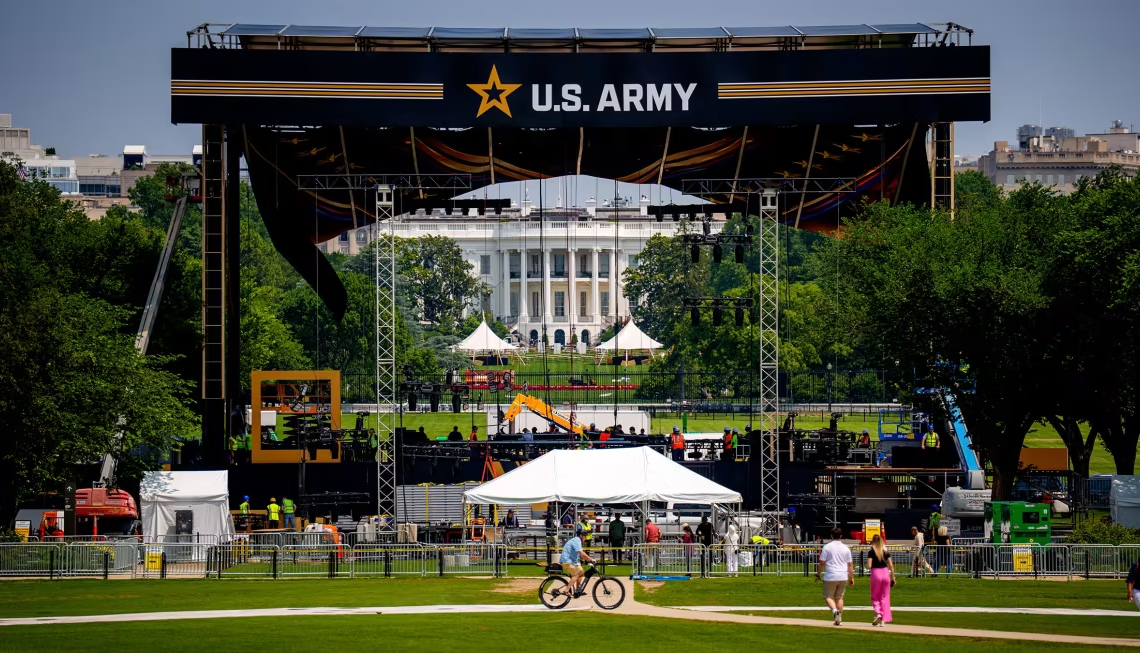As the U.S. Army commemorates its 250th anniversary, the moment is both celebratory and sobering. A legacy forged in revolution and preserved through countless conflicts is now confronting a different kind of challenge: political polarization. In recent years, military leaders and observers alike have expressed concern that the militarys apolitical tradition—a bedrock principle of American democracy—is increasingly under threat.
This longstanding tradition, rooted in the foundational values of the republic, holds that the armed forces serve the Constitution, not any political party or ideology. But amid a shifting national climate, maintaining that neutrality is proving more difficult than ever.
The Foundation of the Militarys Apolitical Tradition
The concept of an apolitical military dates back to the very birth of the United States. George Washington, the nation’s first commander-in-chief, firmly believed that military power must remain separate from political influence. His deliberate refusal to seize power after the Revolutionary War set a precedent that endures to this day.
Since then, the military has operated under strict regulations that reinforce its neutrality. Department of Defense directives prohibit active-duty personnel from participating in partisan activities, endorsing political candidates, or using their position for political gain. These rules are not just bureaucratic— they are essential safeguards against politicizing a force that must be able to defend all Americans equally.
Why the Apolitical Tradition Matters
The militarys apolitical tradition is more than a formality—it is a cornerstone of trust. Surveys consistently show that the military remains one of the most respected institutions in American life. That respect is grounded in the belief that service members are loyal to the nation as a whole, not to individual political leaders or movements.
Neutrality is also vital for operational readiness. In a diverse force made up of Americans from all walks of life, political division within the ranks could be disastrous. Cohesion, discipline, and unity of command depend on a shared mission, not ideological alignment.
Recent Events Raising Red Flags
Over the last decade, however, that neutrality has come under scrutiny. Events such as the January 6th Capitol riot saw veterans and even some active-duty personnel participating in violent political action, raising alarms across military leadership. Social media has further complicated the issue, with service members expressing political views in ways that blur personal freedom with professional responsibility.
Controversies around public comments by retired generals, political displays on military bases, and the politicization of national security decisions have only intensified the conversation. For many, these are signs that the boundary between military service and political allegiance is becoming dangerously thin.
The Leadership Response
Military leaders have not remained silent. Officials from the Pentagon and various service branches have publicly reaffirmed their commitment to political neutrality. In 2023, Army Chief of Staff General Randy George emphasized that “our duty is to the Constitution, not to any party,” during a training summit on ethical leadership.
The Department of Defense has also updated its guidance on political activity, aiming to clarify what constitutes acceptable behavior both on and off duty. These measures are designed to preserve the militarys apolitical tradition in an age of digital communication and political extremism.
Challenges in a Politicized Society
Preserving that tradition is no easy task in today’s hyper-partisan environment. The military cannot isolate itself from the society it serves. As political tensions rise, the temptation to draw the armed forces into ideological debates has increased. Politicians have, at times, used military imagery or endorsements to bolster their campaigns, undermining the perception of neutrality.
Recruitment also presents a challenge. Younger generations, particularly those raised in the age of online activism, may bring different attitudes about political expression into the service. Leaders must strike a delicate balance between respecting individual beliefs and enforcing the institution’s nonpartisan mandate.
A Tradition Worth Protecting
At 250 years old, the U.S. Army remains a pillar of American strength. But its continued effectiveness depends not just on weapons and training, but on values. Chief among them is the militarys apolitical tradition, which has allowed the armed forces to function above the political fray, even in the nation’s most divisive moments.
As the Army looks toward the future, preserving that tradition must be a top priority. It requires strong leadership, vigilant enforcement of ethical standards, and a collective commitment to ensuring that the military serves no faction—only the nation.
Don’t Miss Out! Get the Latest News, Tips, and Updates from Us!


